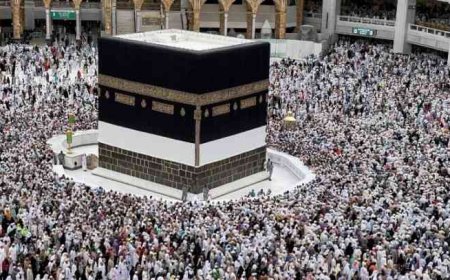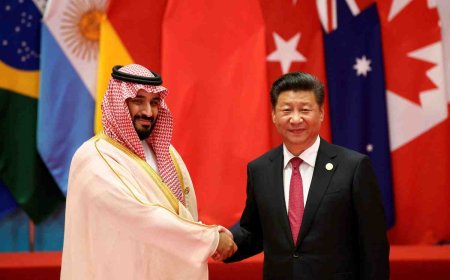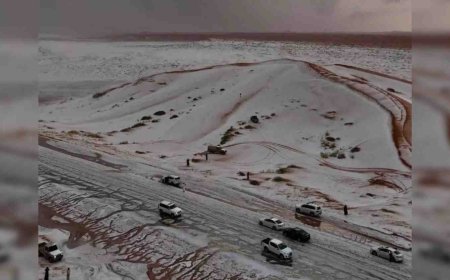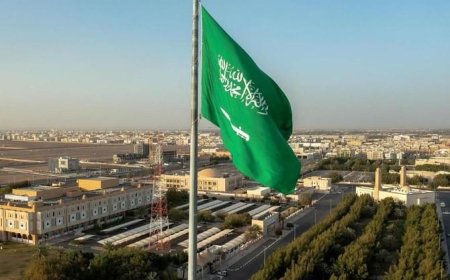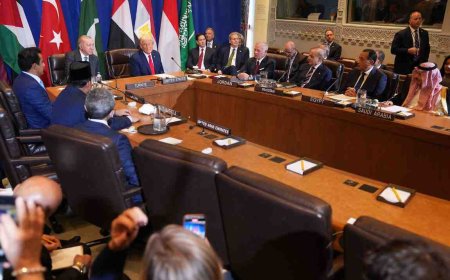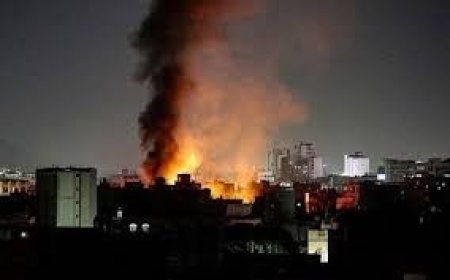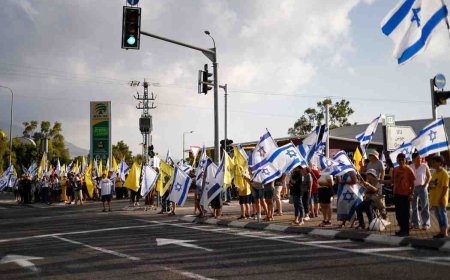Qatar Rejects U.S. Claim of Prior Warning Before Israeli Strike on Doha
Qatar has strongly denied U.S. claims that it was given prior warning about Israel’s recent airstrike in Doha. The Qatari government rejected the White House’s assertion, emphasizing that no advance notice was provided. The dispute highlights growing diplomatic tensions amid the fallout from the unprecedented attack.
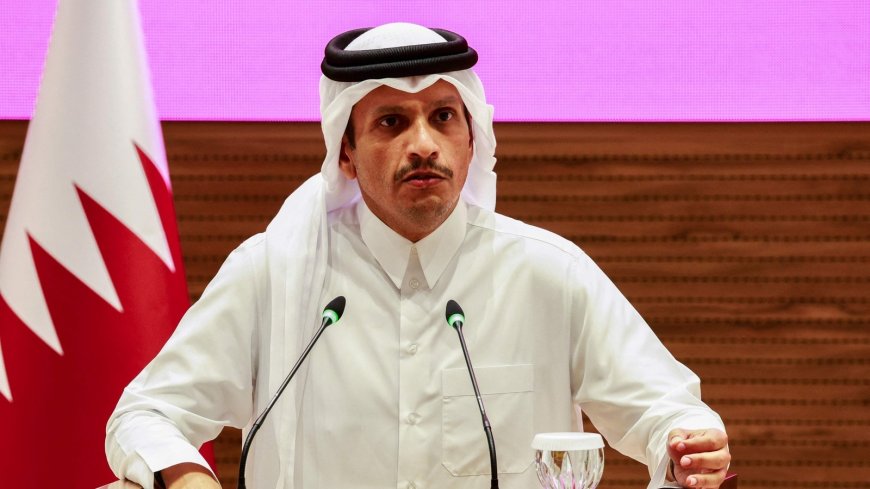
Qatar Rejects U.S. Claim of Advance Warning on Israeli Doha Strike
Following an Israeli attack on Hamas leaders in Doha, the US and Qatar have developed a significant diplomatic dispute, with the main point of concern being whether a prior notice was given. The White House claims it notified Qatari officials, which Doha has categorically denied as "completely false," raising tensions between the vital partners and threatening fragile cease-fire talks.
The White House's Account: A Claim of Notification
White House Press Secretary Karoline Leavitt presented the Biden administration's version of events, saying that the US military advised President Donald Trump about the planned Israeli action. According to Leavitt, Trump quickly asked his Special Envoy, Steve Witkoff, to alert Qatari authorities of the upcoming strike.
While agreeing that defeating Hamas is a "worthy goal," Leavitt clearly separated the US from the operation's location, adding that attacking a sovereign US partner like Qatar—a nation essential to mediation efforts—"does not advance Israel or America's goals."
Leavitt further said that following the attack, President Trump spoke with both Israeli Prime Minister Benjamin Netanyahu and Qatari Emir Sheikh Tamim bin Hamad Al-Thani. In the chat with Qatar's ruler, Trump allegedly promised him that "such a thing will not happen again on their soil" and expressed his "deep regret" over the attack taking place within Qatar's borders.
Qatar’s Forceful Rebuttal: Denouncing a "False" Narrative
Qatar's response was quick and clear. A politician from Qatar's Ministry of Foreign Affairs delivered a strong criticism, calling the White House's claims "completely false." According to Doha, no advance warning was received.
This timeline offered by Qatar completely contradicts the United States' claim. Qatari authorities said that a call from a US official occurred shortly after the Israeli attack had begun. Qatari Foreign Minister Sheikh Mohammed bin Abdulrahman Al Thani termed the ten-minute wait between the start of the explosions and notification as "state terrorism."
This direct rejection strikes to the heart of the trust between the two countries, calling into question the transparency and cooperation that define their strategic alliance.
The Strike’s Context and Deepening Fallout
The differing warnings related to a high-risk Israeli raid on a residential complex in Doha's Leqtaifiya area. The strike, which killed six persons, including a Qatari security officer and the son of a top Hamas negotiator, represented an unprecedented extension of Israel's campaign by hitting directly on Qatari territory. Crucially, it occurred when Hamas leaders were reportedly discussing a US-backed cease-fire plan for Gaza, though the group understood that its senior talks team had survived.
Geopolitical Implications: A Strained Alliance Under Pressure
The conflicting narratives have immediate and serious consequences for regional diplomacy:
- Strained U.S.-Qatar Relations: The partnership, which includes thousands of U.S. troops located at the key Al-Udeid Air Base, is now openly tense. Public disputes on fundamental truths damage the trust required for intelligence sharing and effective strategic planning.
- Mediation at Risk: Qatar has regularly acted as the major mediator between Israel and Hamas. Despite the attack, Doha has maintained its commitment to this role; yet, the erosion of confidence with the United States—a major stakeholder in these talks—could undermine the entire negotiation process.
-
Sovereignty and Security: Qatar's strong rejection of the US claim is a strong statement of its sovereignty. Doha's public challenge to a significant ally signals that its position as a mediator cannot be taken for granted and that violations of its territory will result in an aggressive diplomatic response.
Looking Ahead: Navigating a Diplomatic Crisis
Moving forward requires a careful balancing act by everyone affected. The United States must handle an important military relationship with Qatar while preserving its connection with Israel. Qatar must maintain its credibility in mediation while responding to a perceived violation of its sovereignty. For Hamas and Israel, the event adds a layer of distrust and difficulty to already delayed cease-fire talks.
What's Your Reaction?







